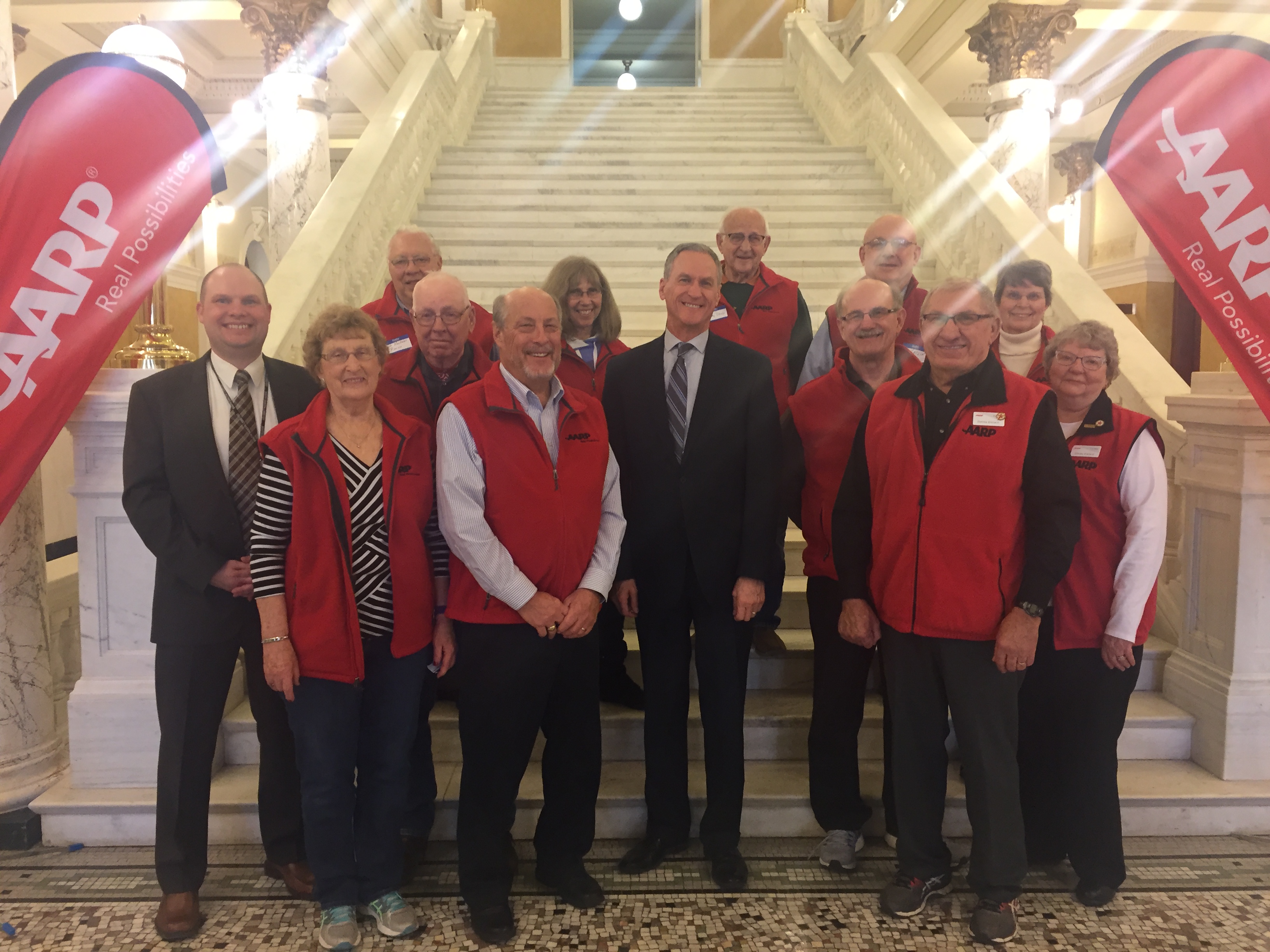AARP Hearing Center
Unfortunately, the weather prevented us from flooding the capitol with a sea of AARP red this week during our annual Lobby Day. However, an enthusiastic group of Pierre area volunteers did a wonderful job representing the more than 180 advocates who were snowed in across the state. We were joined for lunch by more than 75 Legislators with whom we discussed health care policies, issues of financial security and other AARP SD priorities.
A BIG THANK YOU TO THE PIERRE AREA AARP VOLUNTEERS FOR REPRESENTING US THIS WEEK AT THE CAPITOL!

The snowy weather did not slow down the legislative activity in the Capitol.
This week AARP South Dakota testified in support of Senate Bill (SB) 61. SB 61 modernizes the South Dakota Nurse Practice Act to bring South Dakota in line with national standards for Certified Nurse Practitioners (CNPs) and Certified Nurse Midwives (CNMs). Fully utilizing advanced practice registered nurses (APRNs) would increase our consumer access to health care and reduce unnecessary health care costs.
43% of South Dakotans live in rural areas and 1 in 4 South Dakotans live in areas designated as primary care shortage areas. However, CNPs and CNMs are employed in 61 of South Dakota's 66 counties. This means consumers will benefit from SB 61 which would allow APRNs to fully practice, especially in rural and urban under-served areas where few clinicians are available to meet patient needs. APRNs can provide consumers with access to convenient, cost-effective, and high-quality care.
This is also important as the population of South Dakota continues to age: 16% of our population is over 65 and 13% is age 55-64. As the population grows older, our state's need for primary care options and care coordination will continue to increase.
AARP South Dakota feels it is essential to explore ways for all health professionals to provide services to the full extent of their current knowledge, training, experience, and skills. Removing the barriers to CNP and CNM practice and care can increase the availability of primary care services for more South Dakotans.
With AARP South Dakota’s support, SB 61 passed out of Senate Health and Human Services (unanimously) and on the Senate floor (unanimously) and now moves on to the House of Representatives for consideration.
Additionally, AARP South Dakota testified against House Bill (HB) 1003 which allows nursing facilities to transfer or sell nursing bed capacity. Opponents of this bill feel it is unnecessary and will have negative consequences. AARP South Dakota feels this bill may impact nursing home residents’ quality of care and the communities they live in. In addition, the cost of purchasing beds may be passed on to the consumer.
South Dakota already has both a critical access program and a nursing bed redistribution program in place to ensure there are beds in rural areas without the trading or selling of beds. The problem is not bed capacity at our long term care facilities; the problem is workforce shortage. Many facilities struggle to find workers and offer a competitive wage and HB 1003 does not address this issue.
HB 1003 passed out of the House Health and Human Services Committee on an 8-5 vote and will likely be up for House floor consideration on Tuesday, January 31.
The AARP Action of the Week is:
Thank your Senators for voting to support SB 61 (updating the Nurse Practice Act) and tell your members of the House to oppose HB 1003 (allowing nursing facilities to transfer or sell nursing bed capacity).































































